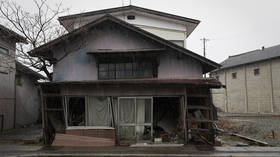City authorities mull tax on empty houses

Authorities in the ancient Japanese city of Kyoto plan to introduce a tax on empty houses, the Financial Times reported on Saturday citing Japanese media.
The city is struggling to deal with some 15,000 rapidly decaying abandoned homes, also known as akiya, which were literally left to rot after owners died and heirs refused to manage them. Many delay the sale of such heirlooms, keeping them for the use of children and grandchildren. However, left unmanaged for years, the houses simply decompose.
The goal of the tax plan is to salvage such structures before they become uninhabitable. The proposed measure will demand that current owners of the abandoned homes pay the Kyoto government a fee, which would be spent on the restoration of the buildings. According to the plan’s initiators, the tax incentive could help rent or sell the salvaged homes to new owners.
The problem of akiya is widespread in Japan, where the population is declining at a rate of about 1,500 people a day. According to government data, in 2021 the Japanese population declined by 630,000 people.
Regarding houses, some 14% of the country’s housing stock, or about 8.5 million homes, were unoccupied as of 2018, figures from the internal affairs ministry show. According to forecasts of the Nomura Research Institute, this number may exceed 31%, or 22 million houses, by 2038.
Kyoto’s tax plan, if introduced, would be the first such measure to deal with the akiya problem, and some say it could become a template for other local governments. Authorities still need the plan to be approved by the Internal Affairs Ministry and the city council. The approvals are expected to be received later this month. Hiroyuki Nakagami, who manages the empty home tax system, is hopeful of a positive outcome and expects the measure “to widen the choices of residences which are still not on the distribution market, so that we don’t leave these assets idle but deliver them to the next generation.”
For more stories on economy & finance visit RT's business section













